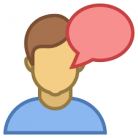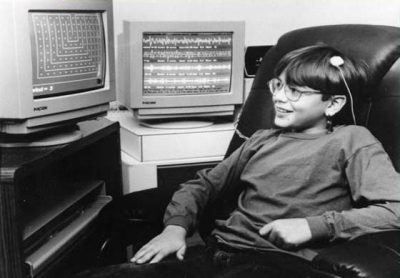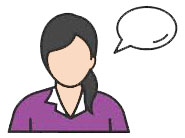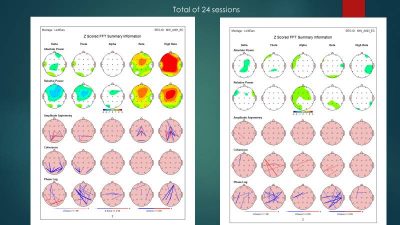What’s your addiction?
Legal drugs, illicit drugs, alcohol, sex, gambling, internet, eating disorders?
Nobody needs to tell you that addictions are bad. You already know that any kind of addiction can ruin lives: health, families, relationships, etc. and it can all end very badly.
And yet you keep coming back because you want/need to get what it has to give. The future is later, need is now. Go to any kind of 12-step program meeting and the overwhelming emotional theme is desperation.
Addictions tend to run in families. Did you get this from your parents? Do some of your relatives have feelings that need some kind of self-medication?


What you share is a tendency for too many fast brain waves in the back of your head. You have a network in your brain (the default mode network) that is not fully functioning. When you are at rest, this network should tell you that everything is all right for now and you don’t have to get some extra kind of satisfaction. This state is too rare for those with addictions: Resting satisfied with plain status quo.
You want to stop the desperate need that drives your addiction. Then you want to build the power and wisdom to resist temptations.
Imagine the freedom of being able to just go through life without a desperately seeking. Can you see yourself as being okay with yourself as is? This may be hard to imagine now. But it is possible.
Biofeedback can help
 EEG biofeedback is very good at relaxing you and your brain. It can show you how to relax yourself. When you relax your brain deeply enough each session, the results build and last. This will slow down the fast brain waves is the back of your head.
EEG biofeedback is very good at relaxing you and your brain. It can show you how to relax yourself. When you relax your brain deeply enough each session, the results build and last. This will slow down the fast brain waves is the back of your head.
Then the brain’s default mode network can come back online. This calms the storm that demands satisfaction. As you develop the capacity for self-soothing, a quiet contentment becomes possible. When you can self-soothe, you don’t need the other stuff anymore.
I have helped people with all kinds of addictions with a great degree of success. Since 1990 all the research agrees that the success rate for neurofeedback is about 80%. Long term follow-up studies show strong lasting benefits at 80%.
In clinical practice, the results are even better because a clinician has more freedom to use judgement instead of being locked into the experimental protocol.
Compare this 80% for neurofeedback to 12-step programs. They don’t welcome research, but the success rates are estimated to be 12-20%.

The research also shows that there are lots of side benefits to EEG biofeedback
- Improved personality
- Focus, concentration and clarity
- Greater health and wellness
- Improvements in mood
- Better relationships
- Occupational success
In general the mind is a more comfortable place to be.
The results of residential treatment facilities that use BrainPaint EEG Biofeedback
- People stay in treatment longer
- They don’t leave early against medical advice
- The patient and staff are more harmonious
- Relapses are shorter and less serious
- Since 2013, no one has died as a result of their addictions if they have at last 14 neurofeedback BrainPaint sessions.
EEG brain maps

EEG brain maps shows too many fast brain waves in addiction.
Before neurfeedback on left and after on the right.
See the excessive red hot spot under High Beta (the fastest Brain Waves).
Please Contact Me
If this is an issue for you or someone you know, please contact me to learn if neurofeedback may be an appropriate treatment. We’ll talk briefly on the phone or chat via email and then set up a time to meet.
Research
Overview of literature confirming that ~80% success rates are typical and enduring.
EEG Biofeedback as a Treatment for Substance Use Disorders: Review, Rating of Efficacy and Recommendations for Further Research.
http://www.isnr-jnt.org/article/view/16678
High quality study showing long term success on a variety of measures.
Effects of an EEG Biofeedback Protocol on a Mixed Substance Abusing Population, Jul 2009
https://www.tandfonline.com/doi/abs/10.1081/ADA-200056807
Food addiction responds to neurofeedback.
A randomised, double-blind, placebo-controlled parallel trial of closed-loop infraslow brain training in food addiction
https://www.nature.com/articles/s41598-018-30181-7
Quieting the craving for heroin.
Neurofeedback Training for Opiate Addiction: Improvement of Mental Health and Craving
Appl Psychophysiol Biofeedback, 2013 Apr
https://www.ncbi.nlm.nih.gov/pmc/articles/PMC3650238/
Real vs. Sham treatment.
The Effectiveness of Neurofeedback Therapy in Craving of Methamphetamine Use
Open Journal of Psychiatry, 2015
https://www.scirp.org/journal/PaperInformation.aspx?PaperID=55343
Results last.
Alpha biofeedback therapy in alcoholics: an 18-month follow-up
J Clin Psychol. 1978 Jul
https://www.ncbi.nlm.nih.gov/pubmed?cmd=Retrieve&db=PubMed&list_uids=690224&dopt=AbstractPlus
“This is amazing. I feel so good every time we are done with a session.
Such a huge impact on my life. Thank you.”
“I used to have mental problems that would consume my life.
But now I’m just living a great life.”
“Biofeedback has been great for me.
It really worked to overcome my issues.”
“I can’t believe how much this biofeedback helped me overcome that head trash.
Life is so much better now.”
“I have grown so much over the past 2 months.
This freedom is wonderful.”
“I used to have a slew of problems.
Those are gone now and I have moved on.”